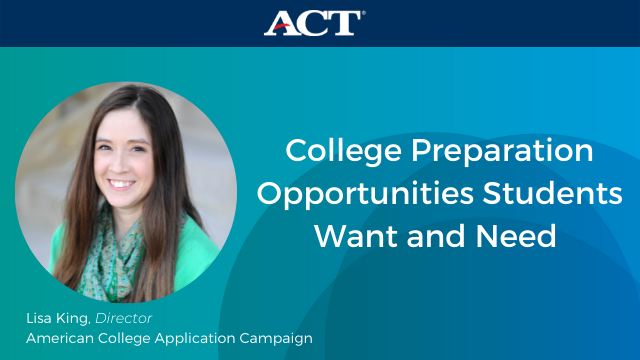By: Trabian Shorters, CEO, BMe Community
In February, hundreds of ACT team members across the organization learned from BMe Community CEO Trabian Shorters about Asset-Framing. This cognitive frame holds that by defining people by their aspirations rather than their challenges, we can prime the public to fix the systemic problems that block the achievement of those aspirations. Here, Shorters expands on his presentation and Q&A session with additional thoughts on how organizations and individuals alike can put this equity-focused framing into practice.
I’m often asked, “How can we use Asset-Framing to avoid centering the conversation about racial equity on Black people?” But, it’s never said that bluntly. More often it’s, “How can we use Asset-Framing to appeal to a broader constituency?” Or, “How can we discuss Asset-Framing in a multi-cultural context – beyond the Black community?”
It’s a great question, and as the inventor of Asset-Framing® and a student of applied cognitive, social, and cultural psychology, I find it critically important that we learn to value all members of the human family.
To be most effective at applying Asset-Framing to all people, we must overcome our socially normed yet neurotic fear of Asset-Framing Black people. I use the term neurotic here literally: “a psychological state characterized by excessive anxiety or insecurity, compensated for by various defense mechanisms.”
This common excessive anxiety causes people to compensate for thoughts like “Black Lives Matter” with the defense “all lives matter.” Which, by the way, they do. But still, Black Lives Matter. There is zero harm in admitting it. That statement does not negate the value of all. It merely asserts that you cannot negate the value of Black people.
Similarly, when it comes to Asset-Framing, our impulse to apply it to “the all” before applying Asset-Framing to the Black people who invented it is too often that same defense mechanism disguising itself as a perfectly reasonable assertion that “all lives matter.”
Fortunately, there is a solution.
Asset-Framing is “defining people by their aspirations and contributions before noting their challenges and investing in them for their continued benefit to society.” Here are three tactics for Asset-Framing Black people that work to Asset-Frame any and all people.
Challenge Negative Stereotypes with “Contributions Profiles”
Don’t Asset-Frame off the cuff. Prepare Asset-Framed profiles ahead of time. For example, in my workshops, I typically share an evidence-based, data-driven profile of African Americans that highlights how they lead the nation in military service, entrepreneurship, charitable giving, and as fathers actively engaged in raising their children.
Asset-Framed profiles like these let our brains form fact-based impressions of Black people that are fundamentally fuller than the exclusively negative personas, or stereotypes, that social-impact organizations promote. They are not to negate, erase, or even ignore the negative data. They simply prevent anyone from ignoring the aspirations and contributions of the worthy people at the center of our discussions.
Always use well-known and respected sources for your data. Mine are the U.S. Army, Department of Commerce, W.K. Kellogg Foundation, and Centers for Disease Control and Prevention.
Shift the Focus to Fulfilling Aspirations with “Aspirations Profiles”
The same way that contributions profiles deescalate popular stereotypes, aspiration profiles elevate the conversation from “How do we fix XYZ’s problem” to, “How do we fulfill XYZ’s aspirations?” That’s a game-changing perspective shift.
For instance, my organization BMe Community conducted national focus groups with Black leaders that identified four generally held aspirations of Black Americans throughout history. We summed them up as the Black aspirations to freely Live, Own, Vote, and Excel, which we now call the Agenda for Black L.O.V.E.. Leaders from
bank presidents to
major foundation leaders and thousands of individuals of all races
pledged to support these basic freedoms, and billions of private dollars have already transitioned from solving Black problems to fulfilling Black aspirations.
Center Excellence, Not Whiteness, Then Make Sure Everyone Can Achieve It
This third tactic relates to what John Powell, Stephen Menendian, and Wendy Ake termed “Targeted Universalism.” It basically says that everyone should be able to reach the same positive, desirable goal, and when any identified groups fall short of that goal, resources should be allocated proportionate to their distance from the goal.
This is practical, multicultural, and excellent — so long as you don’t presume a white standard for those goals. In a bygone day, white Americans were in the top five of nearly every material standard. But today, globally, the U.S.
ranks 15th in the world in quality of life,
25th in math, science and reading competency, and
46th in life expectancy. In today’s reality, when our universal goals are based on white people, we’re all striving to be about 15th or so in the world. Objectively, that is not a competitive standard.
I’ll conclude with this important reminder. Everyone reading this wants to make the world a better place where everyone has the opportunity and ability to prosper on their own terms. I believe Asset-Framing is an important leadership skill because it lets your brain create fuller and more accurate maps of the people and realities it encounters. Asset-Framing arose from my exploration of how to change culture related to Black people in America. It is disingenuous and self-defeating to seek to apply Asset-Framing to “all people” if you’re unwilling to first apply it to Black people. Those of you who are willing to see Black people for their aspirations and contributions should consider taking
BMe’s Black L.O.V.E. Pledge.
If you can’t yet bring yourself to do so, you can still apply these tactics to apply Asset-Framing to all people. I am very hopeful about the future because people like you and me are building it together.
Trabian Shorters is the world’s leading authority on Asset-Framing® and is a New York Times bestselling author, New Pluralist Field Builder, and founding CEO of BMe Community, which is committed to “building more caring and prosperous communities inspired by Black people.”
.png)
 I would break down the influencers into past and current. My mother and grandmother were significant influences in my past. My mother used education as a way to escape from a difficult childhood and to ensure that she would be independent and able to provide for herself throughout adulthood. She instilled that value in me growing up and made sure I understood that education was the way to shape my world however I wanted to shape it. My grandmother did not go to college as a young woman; rather, she started college after retirement and persevered through her coursework, eventually meeting what would be an insurmountable obstacle: college algebra. She struggled and struggled through her 60s and 70s to pass that course. I even tried to tutor her. She never was able to pass, but she kept trying repeatedly until the point at which it was no longer feasible for her to attend classes. She taught me a lot about perseverance. (Fun fact that they’ve both often remarked on as a point of pride: We all went to the same institution, with my mom and I both graduating at the top of our classes.)
I would break down the influencers into past and current. My mother and grandmother were significant influences in my past. My mother used education as a way to escape from a difficult childhood and to ensure that she would be independent and able to provide for herself throughout adulthood. She instilled that value in me growing up and made sure I understood that education was the way to shape my world however I wanted to shape it. My grandmother did not go to college as a young woman; rather, she started college after retirement and persevered through her coursework, eventually meeting what would be an insurmountable obstacle: college algebra. She struggled and struggled through her 60s and 70s to pass that course. I even tried to tutor her. She never was able to pass, but she kept trying repeatedly until the point at which it was no longer feasible for her to attend classes. She taught me a lot about perseverance. (Fun fact that they’ve both often remarked on as a point of pride: We all went to the same institution, with my mom and I both graduating at the top of our classes.)




.png)












